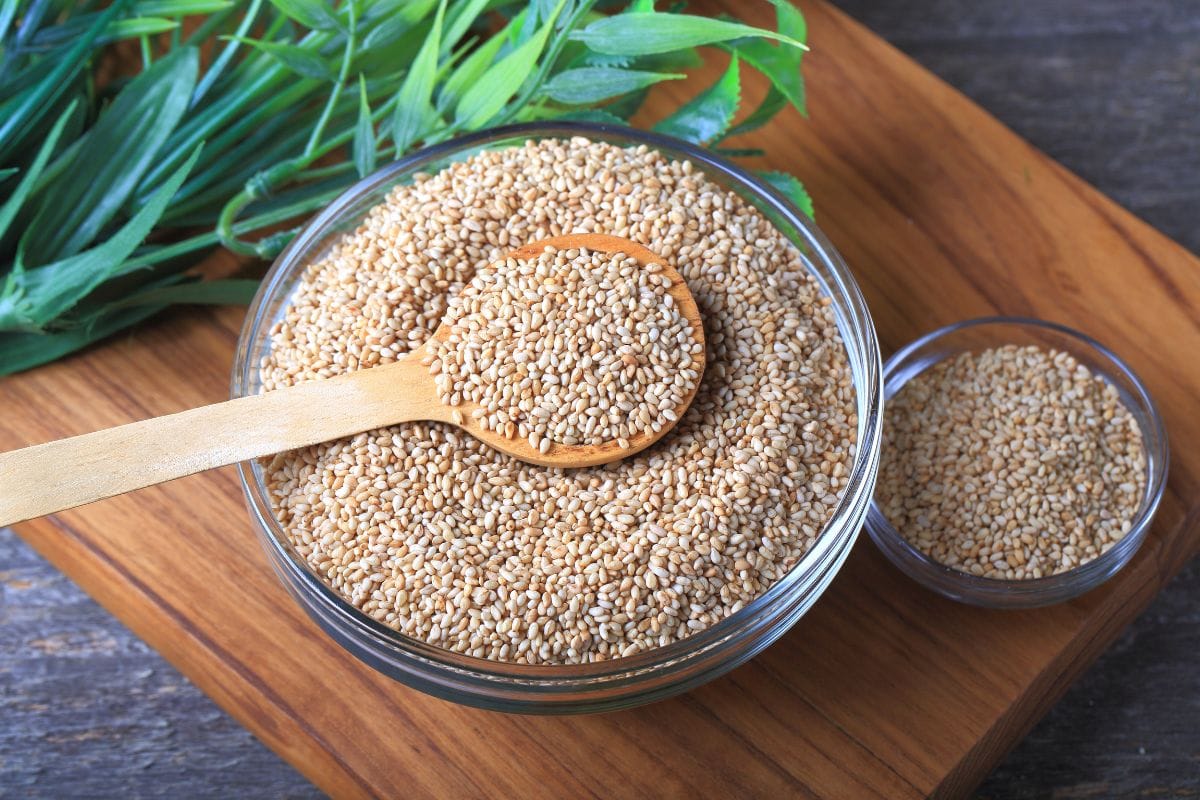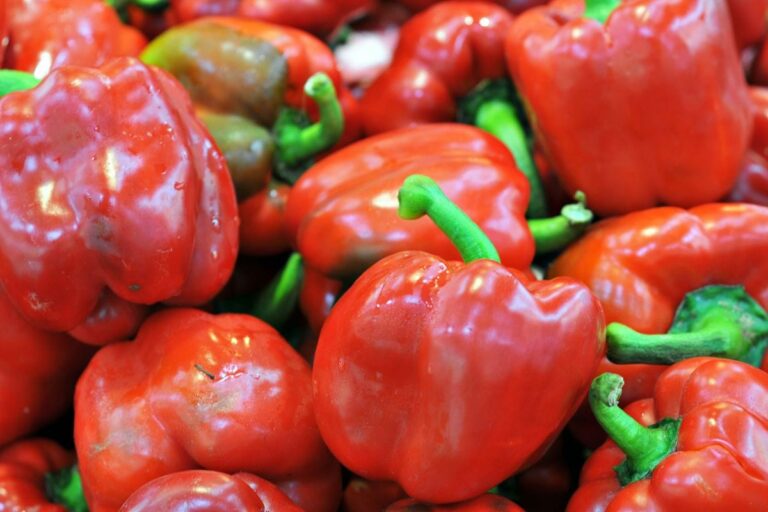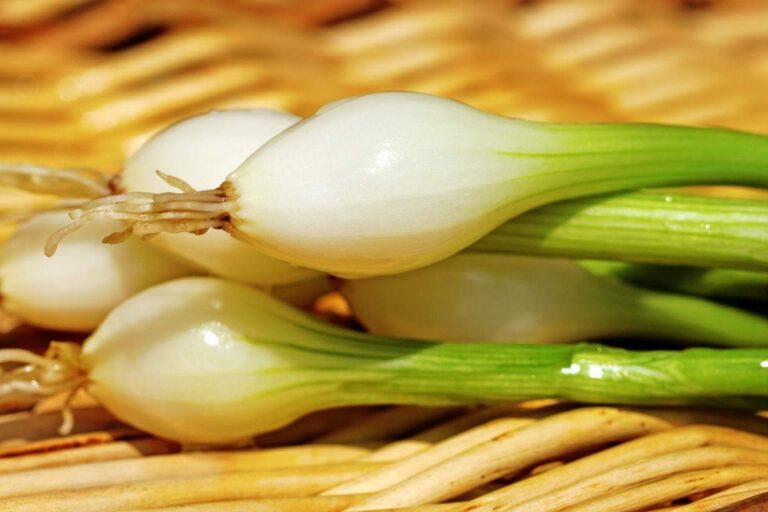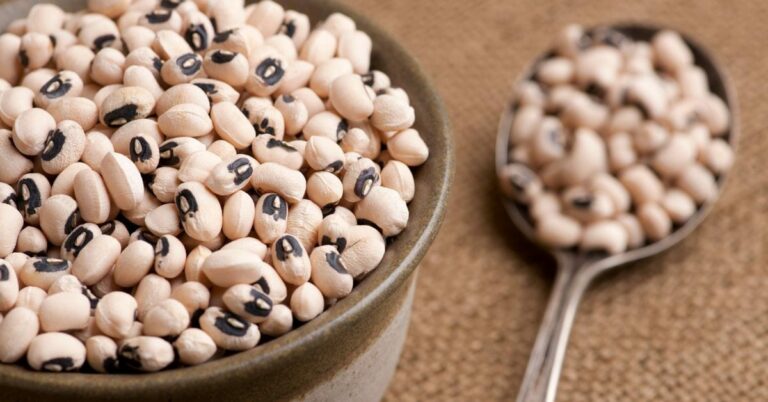The Seed Swap: Using the Best Alternatives to Sesame Seeds in Your Recipes
Almost every kitchen has jars filled with either black or white sesame seeds. But there could be a day when you are in the middle of a recipe and found your jar empty. Always keep any of these substitutes on hand to get that delicious umami flavor in your food.
What are the best substitutes for sesame seeds? Both the black and white sesame seeds can be used alternatively in any recipe. They are very close in flavor to each other and the only difference lies in hulling. Other substitutes that look slightly different and relatively unique in flavor are poppy seeds, hemp seeds, flax seeds, and sunflower seeds.
These substitutes might not match the exact flavor and texture but still, you can use them if you run out or are allergic to sesame seeds. Not every alternative is right for every dish, so you need to understand which seed works well with which dish. But before that, let’s discuss a bit about sesame seeds.
About Sesame Seeds
Sesame seeds are produced by the Sesamum indicum plant originally grown in Indonesia. This oldest known oilseed plant is then transported to other middle eastern countries like India, China, Pakistan, Japan, and Egypt. Sesame seeds are used as a healthy source of proteins, fibers, and vitamins in Asian and Middle Eastern cuisines.
These seeds are tiny and bear a lovely esthetic undertone. Sesame seeds also add a delectable flavor to your healthy diet recipes. That subtle flavor makes it great as a dressing, topping, garnish, or condiment in cooked meals, bakery, desserts, roasted dishes, and a lot more.
Health benefits of Sesame seeds
Sesame seeds, being rich in minerals, vitamins, antioxidants, and proteins, are good for your skin health. They impart an anti-inflammatory effect to help in the fast healing of wounds. These seeds slow down the absorption of sugar in diabetics too. The calcium they contain might help in bone disorders like rickets and osteoporosis. Sesame oil is considered a good alternative to other cooking oils to control cholesterol levels in your body.
Uses of sesame seeds
Sesame seeds are commonly added to many dishes of eastern and Asian cuisines as a flavoring or saucy ingredient. It gives that crunchy texture and rich nutty flavor to certain dishes. Other uses include:
- Top the hamburger buns
- Used as a dressing in baked items
- Sprinkle on falafel
- Top the soba bowl
- Used in the coating of sushi
- Garnish in saucy chicken
- Added to savory dishes
- Put in rice and stir-fry dishes
- Sprinkle over salads
- Used in tahini to make hummus
- Sesame oil is used as cooking oil
5 best Substitutes for sesame seeds
| Sr. No. | Substitutes for sesame seeds | Botanical origin | Best Used in |
| 1 | White/Black sesame seeds | Sesamum indicum | Salads, rice, noodles, vegetables, buns, chicken curry, sushi, stir-fries, soups |
| 2 | Poppy seeds | Papaver somniferum | Cookies, rolls, cakes, yeast bread, kolache, hamantashen |
| 3 | Flax seeds | Linum usitatissimum | Salads, spicy dishes, baked food, smoothies, juices, oatmeal, desserts |
| 4 | Hemp seeds | Cannabis sativa | Cereals, soups, salads, stews, cakes, pasta |
| 5 | Sunflower seeds | Helianthus annuus | Mix vegetables, salads, chicken curry, pasta |
1. White/Black sesame seeds
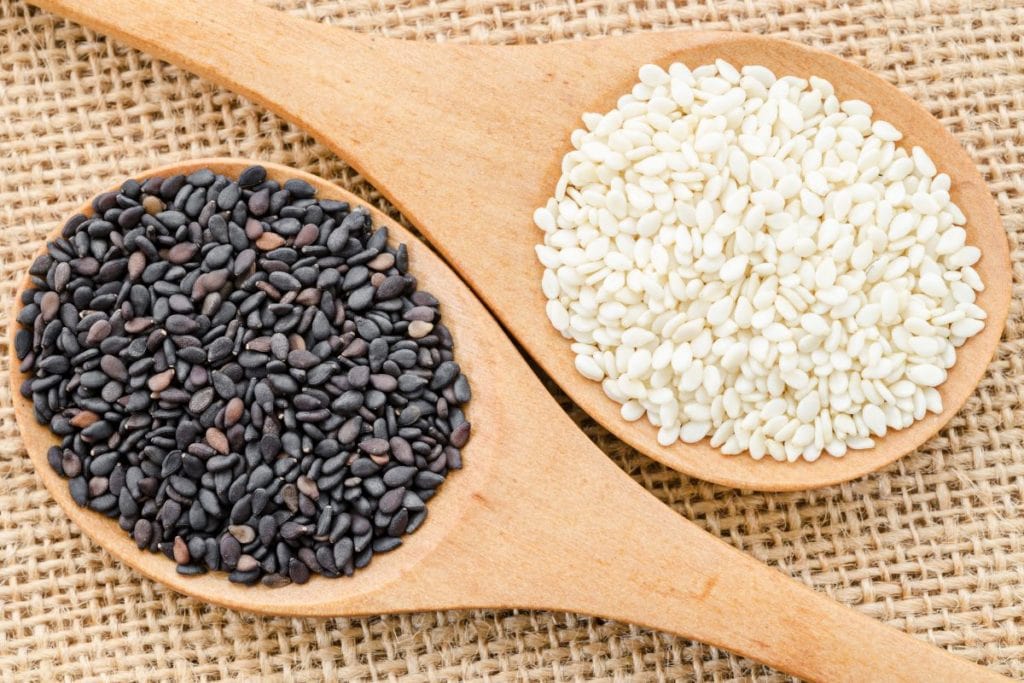
Both these varieties differ in their tone but are relatively interchangeable in almost every dish. White sesame seeds are hulled seeds that undergo a process to remove their hulls or outer covering during the manufacturing process. On the other hand, when the hull or husk is not removed from the seeds of sesame, these unhulled seeds are darker in tone and are called black sesame seeds.
The sesame plant gave a distinctive sesame flavor to its seeds. Their flavor varies due to the outer covering. This hull on black sesame seeds gives them a slightly stronger taste to the food you put them in. While the white ones are sweeter and have a lighter flavor. Black seeds are a bit bitter and crunchy in texture.
They are rich in nutrients like proteins, copper, iron, calcium, magnesium, phosphorus, etc. Both these seeds differ a bit in their nutritional content too. Black ones show high antioxidant behavior than white. The other side, white seeds, also contain vitamins B and E. Both provide myriad health benefits and you can use them alternatively as per their availability.
2. Poppy Seeds
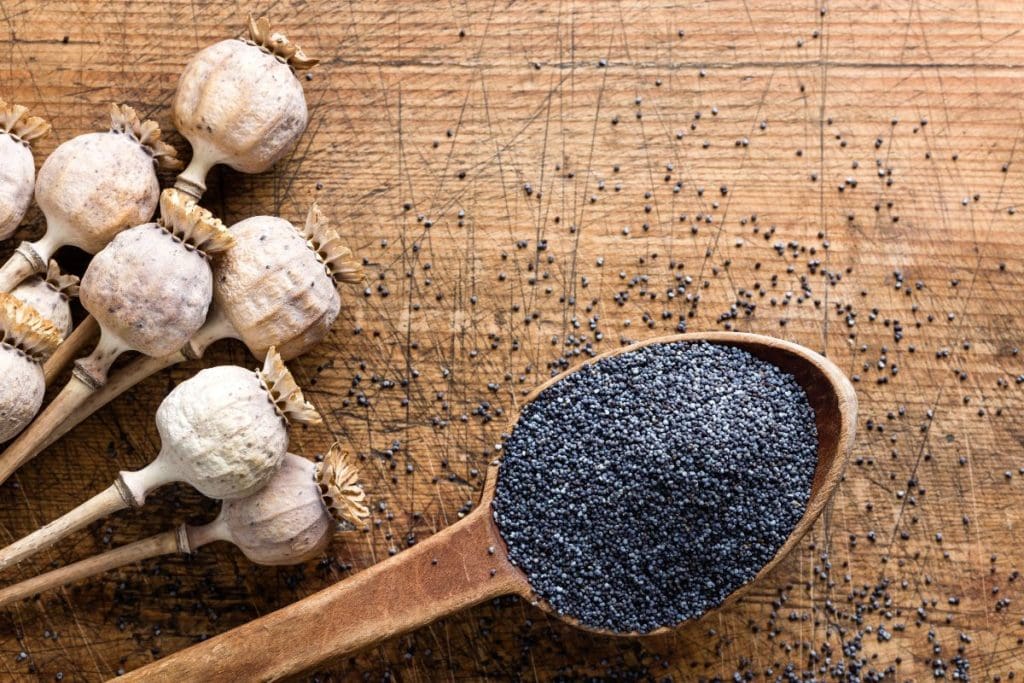
Poppy seeds are little kidney-shaped seeds collected from the seed pods of the opium poppy plant. These seeds are almost similar in look and texture to sesame seeds. They are black and thus closely match with black sesame seeds. Comparatively, poppy seeds are significantly smaller and you need more of them to get the same impact.
Poppy seeds are well suited for decorative purposes in replacement of sesame seeds. They appear to be the best alternative in terms of textural purposes too. The taste profile also bears a nutty flavor but it is slightly more bitter than black sesame seeds. When roasted, these poppy seeds don’t give that umami flavor to your dishes as given by roasted sesame seeds. However, these seeds are rich in fiber and proteins.
3. Flax seeds
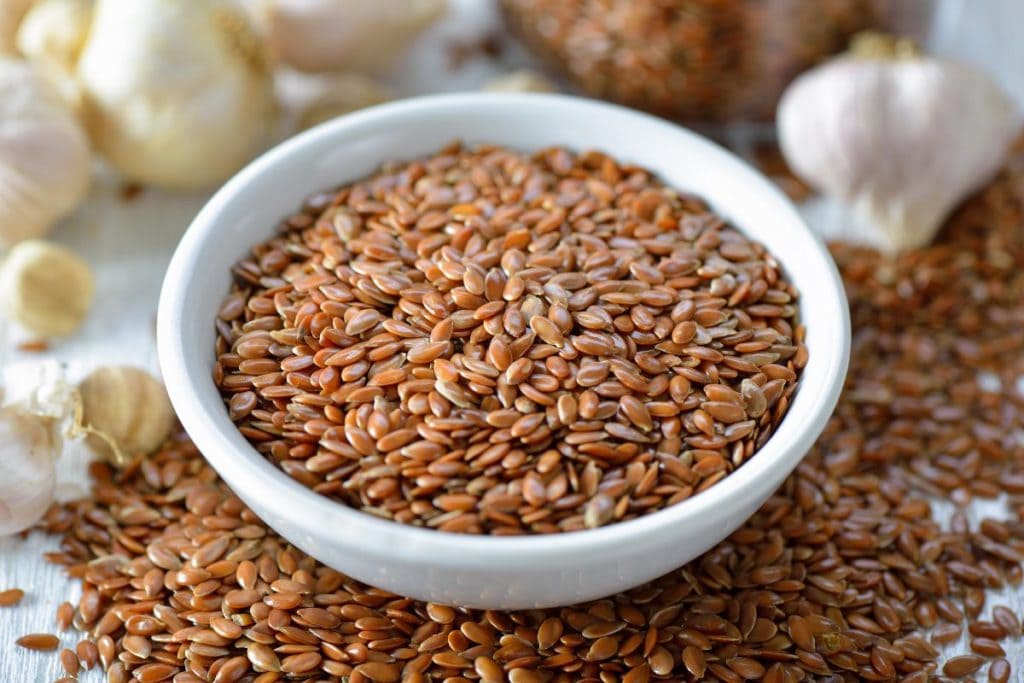
Flax seeds don’t fit in the role here but still could be used as a possible alternative to sesame seeds. They differ in several aspects and should be used only when the above two options aren’t available. They are bigger in size and firmer in texture than sesame seeds.
Flax seeds, also called linseeds, come in a color range from tan to brownish. We recommend the use of brownish flax seeds that are full of fiber and proteins. These seeds are also incredibly rich in linolenic acid and omega-3 fatty acids that improve the health of the heart and fight cardiovascular problems. They help modulate estrogen levels in the body, thus retaining perfect body weight so you can get rid of cellulite. Flaxseeds are also well-known for increasing collagen production.
They bear a slightly similar nutty flavor that feels a bit stronger than sesame. Flax seeds are chewier on eating as they contain a protective coating. They don’t even impart that sweetish or umami flavor like either white or black sesame seeds. They are good only when you want to provide a crunchy texture to your food, though the texture is not the same but still can be used as an alternative.
4. Hemp seeds
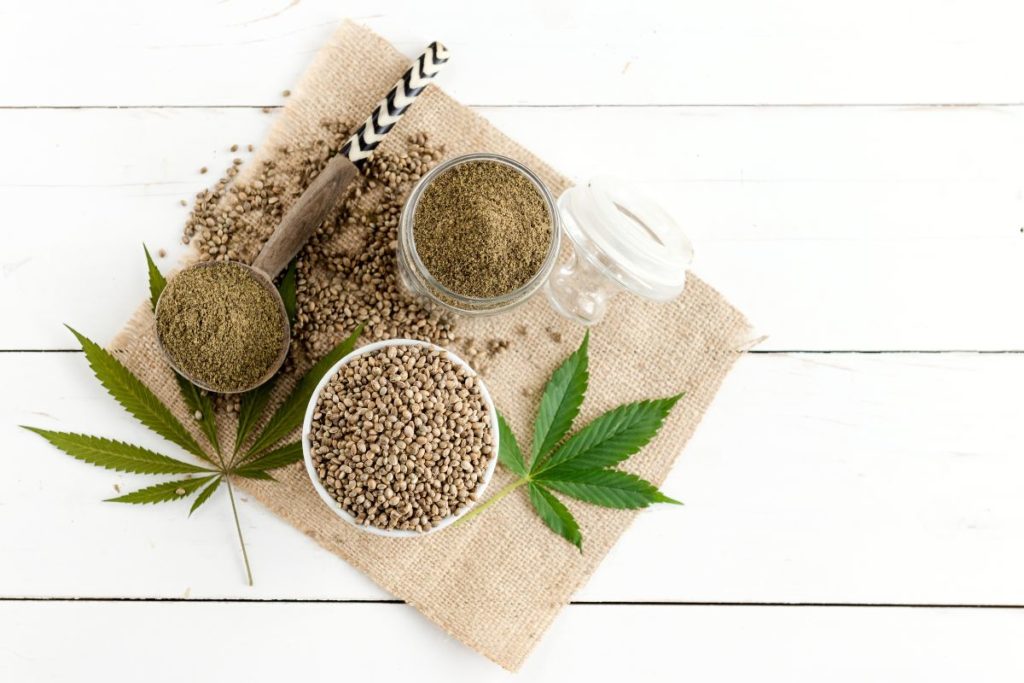
Hemp seeds are obtained from the Cannabis sativa plant originally cultivated in Central Asia. It started in China and spread to European countries later. Hemp seeds are not an easily available option all the time but they tend to have a similar flavor profile and texture as that of sesame seeds. However, they tend to have a milder aroma and taste profile comparatively. That would be a better choice for people who dislike the strong aroma of sesame seeds.
Hemp seeds are just like the replica of flax seeds as it contains the same nutrient profile. The omega-3 and 6 fatty acids take good care of your health. Their delicious nutty flavor lets you level up your taste experiences when eaten raw.
They are versatile in their use and can be substituted in almost all dishes using sesame or poppy seeds except sushi. Their flavor contradicts the natural flavor of sushi and thus not suitable to put in sushi dishes.
In other dishes, it can be used as an ingredient in cooking and baking and can be topped on your healthy snacks like salads, oatmeal bowls, yogurt, and even on bread. They can be garnished over rice dishes as well.
5. Sunflower seeds
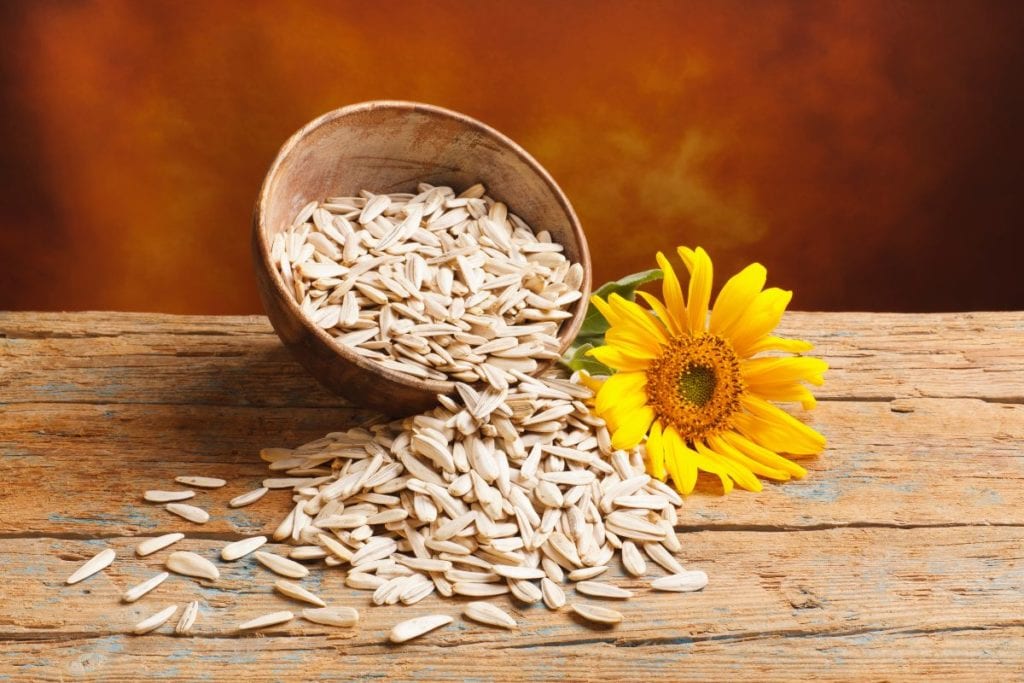
The sunflower bush was natively grown in America for about 4000 years and then shipped to Europe by Spanish sailors. As compared to sesame seeds, sunflower seeds are larger and greatly differ in all dimensions. They are oval rather than flat like sesame or flax seeds.
Their umami flavor is not only similar to the flavor of sesame seeds but also stronger in taste. They are salty, but still slightly sweet in taste. It can be taken as a whole in raw form. Just you need to remove their outer shell before use.
It can be used as a topping or garnish in cooking and baking to get that distinct umami flavor. It can replace sesame in salads, stir-fries, and savory meaty dishes. You can also use these seeds as bread topping and marinade for chicken. Sunflower seeds are a great source of Vitamin E, copper, selenium, phytochemicals, magnesium, and fiber.
One drawback is that salted sunflower seeds may disturb the savory flavor of your dish. You need to adjust the quantities of your seasonings while replacing sesame seeds with sunflower seeds. It also doesn’t go well when replacing sesame in sushi and rice balls.
Conclusion
Here, we’ve got you covered for the top best substitutes for sesame seeds. If you found your jar empty, try to find any of these alternatives in your kitchen.
We’re sure there must be at least one of these seeds available in your pantry. Otherwise, you can simply omit the use of sesame seeds or their alternatives as many dishes can survive without any major shift in flavor.
If you can’t skip sesame flavor, and you’ve no alternative available on hand, consider using a small quantity of sesame oil or tahini.
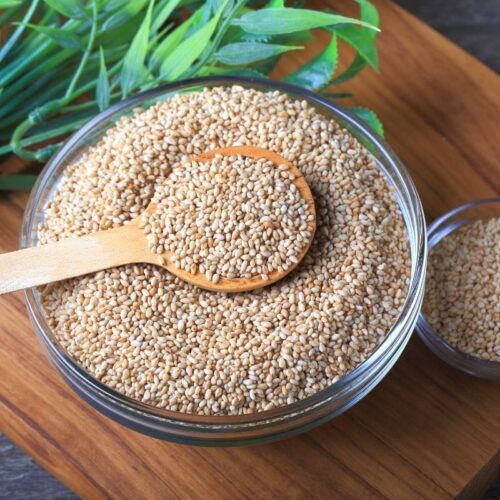
5 Best Substitute for Sesame Seeds
Ingredients
- White/Black sesame seeds
- Poppy seeds
- Flax seeds
- Hemp seeds
- Sunflower seeds
Instructions
- From the list of substitutes above, pick your favorite to use in its place.
- Use your imagination and be creative with these substitute recipes!

